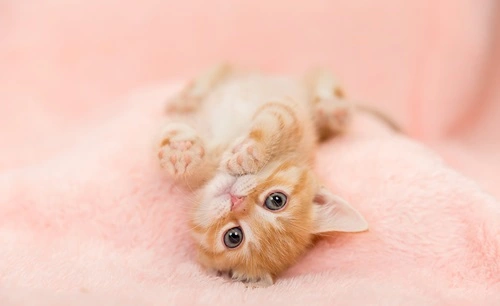Yes, it is illegal to shoot a cat in most circumstances in the United States. Cats, whether they are feral or domesticated, are protected under animal cruelty laws in all 50 states. Killing or harming a cat intentionally without proper justification, such as self-defense in extreme cases, is a criminal offense that can result in fines, imprisonment, and other penalties.
Legal Framework Protecting Cats
1. Animal Cruelty Laws
- Each state has animal cruelty statutes that prohibit the intentional harm or killing of animals, including cats.
- Violators can face misdemeanor or felony charges depending on the severity of the act, whether the cat was a pet, and the intent behind the action.
2. Feral Cats vs. Domesticated Cats
- Feral cats are considered free-roaming animals and may not have specific ownership, but they are still protected under general animal welfare laws.
- Domesticated cats are considered property in legal terms, and killing them can also lead to civil liabilities for property damage.
3. Local Ordinances and Wildlife Laws
- Many municipalities have additional protections for cats, especially in areas with active Trap-Neuter-Return (TNR) programs for managing feral cat populations.
Exceptions to the Law
While shooting a cat is illegal in most situations, there are rare exceptions:
1. Self-Defense
- If a cat poses an immediate threat to a person’s safety, such as through a rabid attack, lethal force may be justifiable. However, non-lethal methods are expected to be used first if possible.
2. Depredation Permits
- In some rural areas, farmers or property owners may apply for a depredation permit to remove feral cats causing significant harm to livestock or property. These permits rarely allow shooting and often require humane removal methods.
3. Euthanasia by Professionals
- Only licensed veterinarians or animal control officers are legally authorized to euthanize animals under controlled and humane circumstances.
Penalties for Shooting a Cat
1. Criminal Charges
Shooting a cat can result in misdemeanor or felony animal cruelty charges. Penalties include:
- Fines: Ranging from $500 to $5,000 depending on the state and severity of the offense.
- Imprisonment: Jail sentences can range from a few months to several years for felony offenses.
2. Civil Liability
- Killing someone’s pet can lead to civil lawsuits for emotional distress and property damage. Courts may award monetary damages to the owner.
3. Community Service and Probation
- In some cases, offenders may be sentenced to community service, probation, and mandatory participation in animal welfare education programs.
Ethical and Humane Alternatives
1. Trap-Neuter-Return (TNR) Programs
- TNR programs humanely trap feral cats, spay or neuter them, and return them to their habitat to control population growth.
- Many communities support TNR initiatives as a humane solution to feral cat overpopulation.
2. Contact Animal Control
Local animal control agencies can address problematic or stray cats in a manner compliant with the law.
3. Use Deterrents
Non-lethal deterrents like motion-activated sprinklers, fencing, or repellents can help keep cats away from specific areas.
In conclusion, Shooting a cat is illegal under U.S. animal cruelty laws, and violators face serious criminal and civil consequences. Whether dealing with feral or domesticated cats, humane alternatives like TNR programs or professional animal control services should always be used. Understanding and respecting these laws not only ensures compliance but also promotes ethical treatment of animals.
Related FAQs
Q1. Can I shoot a cat on my property if it’s causing damage?
Ans: No, shooting a cat is illegal in most states, even if it is on your property. Use humane deterrents or contact animal control instead.
Q2. Are feral cats protected by law?
Ans: Yes, feral cats are protected under general animal cruelty laws, which prohibit unnecessary harm or killing.
Q3. What should I do if a feral cat population is out of control?
Ans: Contact local animal shelters or organizations with TNR programs. They can help manage the population legally and humanely.
Q4. Can I face charges for killing a cat even if it’s not someone’s pet?
Ans: Yes, animal cruelty laws apply to all cats, regardless of ownership.
Q5. What are the penalties for shooting a cat?
Ans: Penalties can include fines, imprisonment, community service, probation, and civil lawsuits.

